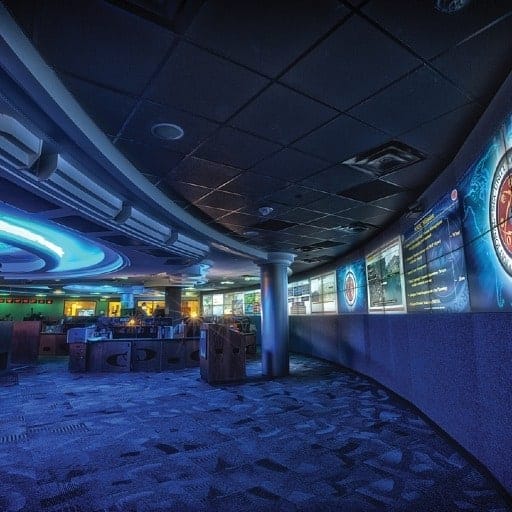So, the board members at MyBiz have agreed upon making security as one of SC the foremost focus areas this year. With increasing capabilities of hackers and cyber thieves, the complexity of securing systems and data is enormous. The CISO has been evaluating having an in-house security team versus outsourcing to managed services, or creating a mix of both. Whatever the choice, effectively there will be a dedicated division taking charge of the organisation’s security. This division is, what is called, a SOC.
What is SOC?
A Security Operations Centre (SOC) is a dedicated function for strengthening an organisation’s security posture. It is responsible for monitoring, detecting, responding to, reporting, and investigating threats and incidents. The key function of the SOC is to pre-empt and defend organisations from threats.
Another important aspect that has put SOC in limelight is the current pandemic situation. It has only heightened the importance of business continuity amidst crisis. While most businesses are grappling with mere existence, having to also deal with the security aspect is simply impractical. That said, it is an area that makes a business most vulnerable at such times, making them easy targets for hackers. A well established SOC plays an important part in keeping the essential business functions running securely.
The responsibilities of SOC span across a wide range, from securing infrastructure, software, resources, data, and intellectual property, to maintaining the organization’s brand value. Hence, it is important to have a varied expertise employed at an SOC. An SOC will typically have a well-equipped infrastructure and best-in-class security experts to assist with research and resolution. The team comprises of analysts and engineers, with expertise in application and network security, threat hunting, malware as well as incident response. This team is headed by a SOC manager who in turn typically reports to a CISO.
Does this sound like a Bond movie? Well, it doesn’t have to be all that flashy after all! (Although, there’s no harm showing off!).
How a SOC Operates
The SOC works as a central hub where entire security requirements of an organisation are run in a collaborative way. It is inherently blue in nature, working more like a watchdog. This continuous monitoring and collective analysis put organisations in control of their security. It puts them in a better position to avoid or respond to threats in a timely manner.
Having said that, the best of the setup will turn out worthless, if the team has no direction. Hence, clear security goals should be defined that align with the business strategy. High level of collaboration is required to align interdepartmental security needs with business objectives. An SOC should also work closely with the assurance teams to ensure that the guidelines are stringently followed. This is a basic requirement to maintain quality and consistency, and an important step towards building robust systems.
SOC Best Practice
Let us look at some best practices that ensure success of an SOC.
Implement efficient procedures
The SOC deals with huge amounts of data, captured through audits, logs, and analytics, and therefore, having well documented processes and procedures is very important. Another way to increase efficiency, is to reduce the total amount of data that needs to be handled in the first place. Automation capabilities can be deployed for processes that have been proven robust, thus reducing human intervention and the unnecessary white noise. Machine Learning capabilities have already proven highly beneficial in this aspect, and continue to evolve.
Effective scoping of responsibilities
The nature of an SOC makes it a high-pressure zone for its staff. A focused and balanced approach can be achieved by segregating responsibilities by role. Some common roles deployed at an SOC are:
Security Analyst: Responsible for detection, investigation and responding to threats, and also outlining and implementing security measures
Security Engineer: Responsible for building and managing systems and security architecture, implementing and maintaining appropriate tools, and preparing usage procedures and protocols for users
Security Manager: Manage overall operations and security teams, create hiring policies, and identify and scope new developments
Chief Information Security Officer (CISO): Define and outline organisation’s security operations, define security strategies, manage compliance, and take organisation’s overall security ownership
Automation
The SOC teams are expected to handle a huge amount of responsibilities. Manually carrying out the activities not only leads to burnout, but is also very error-prone. Implementing the right level of automation will ease out unnecessary burden from the employees and lead to robust processes.
Also, creating a comprehensive knowledge base will help as a quick reference to the teams and provide important pointers for monitoring and investigation.
Staying relevant
Lastly, SOCs need to stay up-to-date and ahead of the game. Continuous training and upskilling for its team members is essential to keep SOCs relevant and effective.
Looking at the costs involved in maintaining a successful SOC, it is worth evaluating outsourcing options. Managed Security Service Providers (MSSP) are a good alternative and provide comprehensive, yet cost effective solutions.
SOC Challenges
The nature of operating a SOC makes a sizable impact in terms of both CAPEX and OPEX. Advanced tools, licences, and operational overheads add to the core costs of hiring and retaining capable professionals, of whom there’s already an acute shortage – arguably the major challenge faced by SOCs. Adherence to ever increasing legal and regulatory compliances, like data breach notification, PCI, HIPAA, etc., add to the complexities.
In conclusion, security is a priority in today’s world and safeguarding from operational disruption is the need of the hour. This makes SOC a worthy investment. Tools, people and processes form the key building blocks of SOCs. They provide an efficient and effective mechanism to maintain a company’s security posture. Continuous monitoring helps organisations stay ahead of the game and minimise risking a compromise.
But high operating costs of SOCs pose a major challenge in establishing one. Outsourcing its operations to Managed Security Service Providers (MSSP) helps overcome this challenge and has additional benefits. MSSPs provide the capabilities required by an SOC, with value added services like 24/7 monitoring, scalability, and predictive trends and analytics. They can cater to different needs of businesses and having a broad client base helps them provide solutions at lower costs.




